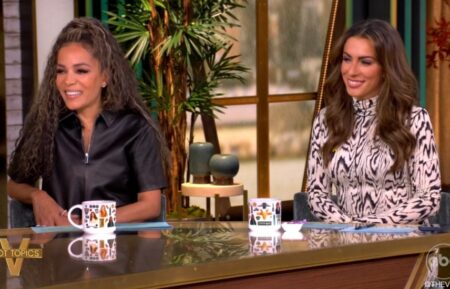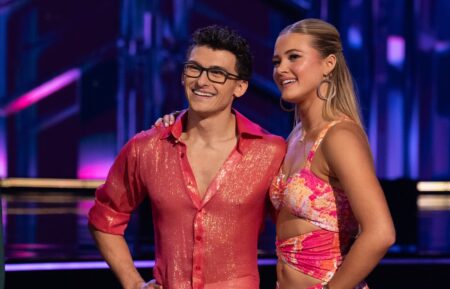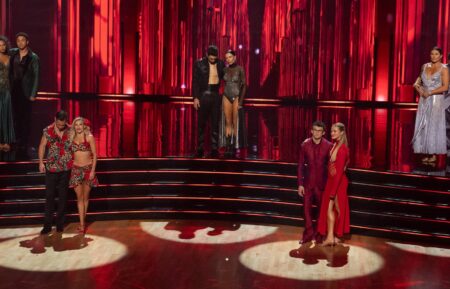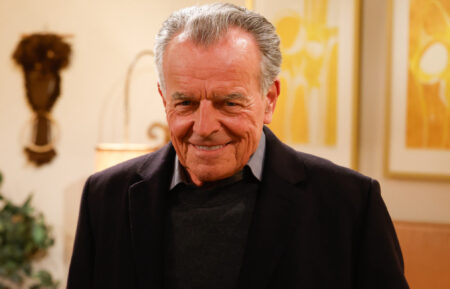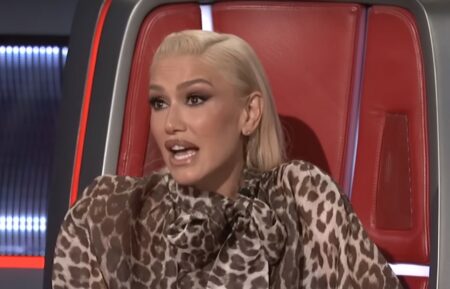‘Goliath’s Molly Parker on Playing a Woman Who ‘Eats Life’
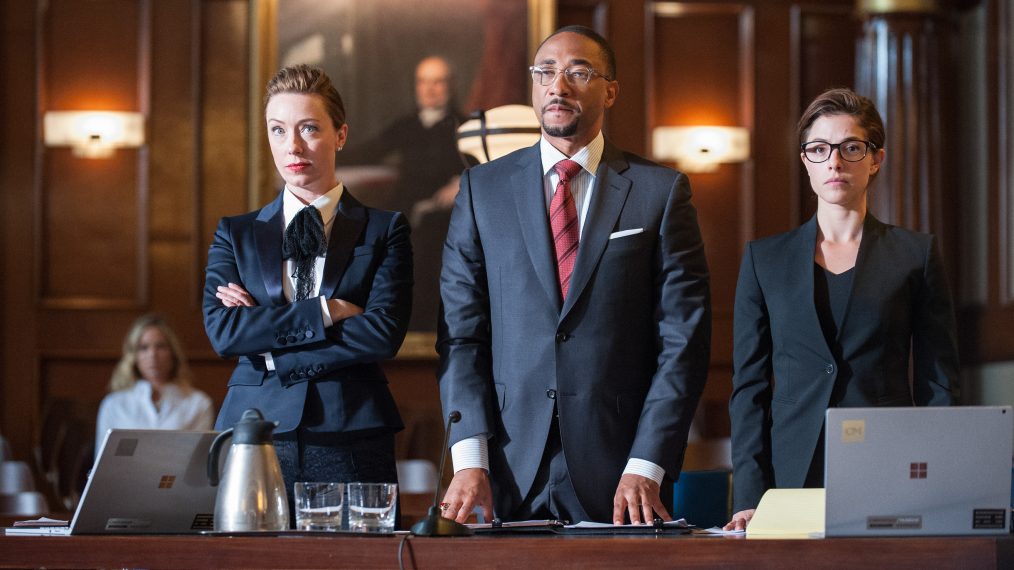
Molly Parker (above left) has been on a bit of a run playing strong, Machiavellian characters over the last few years. Fans of House of Cards know her as Jackie Sharp, the former House majority whip who manipulated her way to almost becoming a nominee for Vice President, until Frank Underwood (Kevin Spacey) cut her out.
In the new series Goliath, she plays Callie Senate, a partner in the firm Cooperman McBride, who carries out the less-than-morally-straight manipulations of her boss, Donald Cooperman (William Hurt), against his former partner, Billy McBride (Billy Bob Thornton), as McBride tries to bring a wrongful-death suit involving his old firm to trial. She’s the yin to
What attracted you to Callie as a character?
She’s fascinating. I had sort of been involved with the project earlier as a different character, and then they basically created this woman for me to play. That was really cool. She’s a fascinating woman. I haven’t had an opportunity to play a woman like her before, necessarily. She’s sort of unapologetically in her own power. So was Jackie Sharp on House of Cards, but this woman is different. The word I would use for her is voracious. She has this appetite for life and all things. She loves her job, and she loves the law, and she’s sexual. Her sexuality’s sort of fluid. She’s just a person who … She could be doing this, but I think she also just takes off and travels on her own. She’s not afraid. She’s a fearless kind of a character, and that’s a very fun thing to get to explore.
Do you feel fearless in your own life, or is it something that was new for you to experience as an actor?
I don’t know. Does anyone feel fearless? I certainly don’t feel fearless. Oh goodness, what would I say about that? I’m not fearless, certainly, but I am willing to walk through my fear, and to do things that scare me. She’s different than me. She’s very, very different than me. She just sort of eats life, just eats it up.
Maria Bello’s character Michelle, who runs Cooperman McBride with you, has more doubt about what the firm is doing than Callie does. Do you see any kind of ambiguity lurking in your character anywhere?
I don’t think she’s particularly concerned with that stuff, to be completely honest. She works for a company who defends huge corporations, and I think there’s a lot of that in the world. I think that a lot of people do that kind of work and say, “Well, but it’s my work, it’s my job,” or the way you hear people say, “Oh, but that’s business,” the way Donald Trump says, “Well, that’s business.” It’s like, yeah, it is. We live in a time and a country in which corporations are considered to have the same rights as human beings. It’s pretty far out, when you really think about it, and so I think that’s one of the main themes of this show and what it’s exploring, is how is that working, and is the law working for everybody, in a world where money buys you whatever you need?
This show is not a law show. It’s a show about a trial in which you have a very classical, anti-hero character, this down-and-out guy who’s lost everything, who goes up against the giant, and yet, certainly, I think, in the casting of it, in the way that we made it, in the way that we thought about it and talked about it, I don’t think the show’s particularly interested in just the black and whiteness of it all. It’s not so much good guys and bad guys, or you wouldn’t have William Hurt playing that guy, because if William Hurt’s playing that guy, he’s going to be a human being, and a human being with all kinds of flaws, but also righteousness. I think, for the most part, people who are doing bad things think they’re right a lot of the time.
RELATED: Goliath: Billy Bob Thornton and David E. Kelley Team for Legal Thriller on Amazon
Co-creator Jonathan Shapiro mentioned that by the end of that first season, your idea of Billy Bob’s character being the good guy and William Hurt’s character being the bad guy, it may be, perhaps, reversed. Is that the feeling you got working on the first season?
It’s not black and white like that. I think the show is very interested in the gray areas. Billy Bob’s character is not that nice a guy, necessarily. He’s not a great dad, he was a terrible husband, he’s an alcoholic. He is in the situation he’s in because he made some choices that were very hurtful to people. It’s exploring all of that stuff. The woman that I play, I think, is a woman who loves the work she does, and she conceives of it as a game, as a kind of thing to win. I don’t think she’s without a conscience, necessarily, but she’s coming from a different place, certainly, than I am. That’s fun to get to play with.
The first two episodes scratch the surface of what Callie is about. What are we going to see from her the rest of the season?
Well, she has history with these people at this firm. She has a long history with Maria’s character, she has a long history with Billy Bob’s character, and with William’s character. The 4 of them were around at the beginning, and so the places where we get to see this woman’s vulnerabilities are within those relationships. That’s all coming. Maria’s character and my character have a very complicated current relationship. More will be revealed.
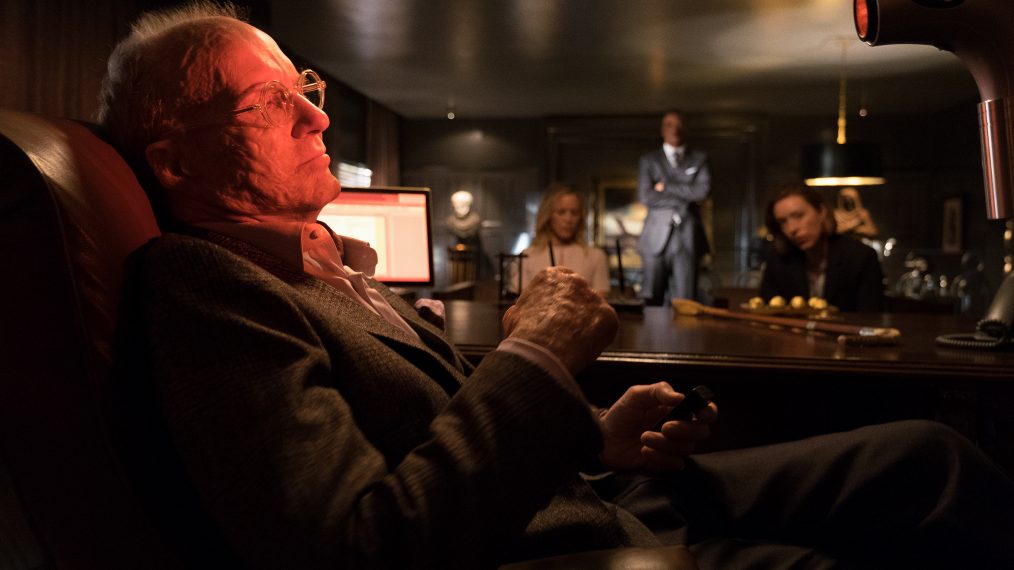
Callie (Parker, in background with Maria Bello and Damon Gupton) works for Donald Cooperman (William Hurt), who has revenge on his mind.
Are we to the point now where a show can have two women run a massive law firm and be matter of fact about it?
Sure. More graduates of law school are women than are not. We’re clearly not at that place, because you and I are having this conversation, and if we were at that place, we wouldn’t be having this conversation, right? I think that’s it. I think that we’ll know when we’re there, because we won’t need to talk about it anymore. I’m personally trying very hard now, in the work that I do and choose to do, and in the ways that I play these women to really conceive of them as just human beings. This could be a man. This character could easily be male, and behave in the way that she behaves, and I think what’s interesting is our reaction to that, to feel like, “Wow, a woman who …” We all see it, we know it exists, that there is this ongoing double standard of a powerful woman flexing her power is considered a bitch, still, whereas a man is, like, it’s powerful. That’s not always and for all people, but that’s still, I think, a lot of the mentality, and it’s changing. It is changing.
I’m mindful about what I’m doing. I don’t feel a responsibility to play women who are good. Do you know what I mean? They don’t have to be good people, they just have to be as full a human being as I can make them, and I feel that part of my job is to constantly be questioning, and like that we all are, sort of like, “Hey, when you wrote this, were you thinking this, or did that just come out? Is that a choice or is that part of an old, unconscious bias?” We have those conversations now at work, on all the shows that I do, because Jonathan Shapiro, for instance, I would say that man’s a feminist. We talk about those things, but for all of us, some stuff slips under the radar. It’s a conversation, it’s an ongoing conversation about bringing it more and more into awareness of what we are doing and what we’re putting out into the world.
What I remember about Jackie Sharp from House of Cards about her is that she didn’t quite show her true face right away, whereas Callie, we know what her mindset is right away. Did anything about playing Jackie set you up for playing Callie?
It’s really funny, because I’ve been doing this for 25 years and so I’ve gone through these different parts of my … I did, like, 40 independent films in the first 10 years of my career. You go through these periods where you’re like, “Why am I playing mothers of children who’ve been kidnapped?” There’s a lot of these weird things that happen, and they do seem to happen in cycles in a certain kind of way. I’m in my early 40s, and I think that there are certain kinds of roles that are out there for women my age right now. I’ve been really enjoying having the opportunity to play women who are unapologetically in their own power, and to be beyond the age of playing the ingenue, or the girl, or where the insecurity is right on the surface.
That said, I didn’t want to play a character who was like the character that I just played, and so it was a thing that I thought about when they … They wrote this part for me, and I talked to them about it, and we conceived of this woman as being something else entirely. Just because she happens to be a woman who is powerful in politics or business and maybe wears a suit sometimes does not make her the same character. They are completely different women. Just because they’re both strong women, there cannot only be one kind of strong woman in the world. That’s insane. There’s so much space for exploration in all of these characters, and this woman that I play is just coming from a really different angle than Callie.
When I think about Jackie, she was tremendously ambitious and could be ruthless, but she really believed what she believed in. She came from this military background, and she wanted the power, but there’s not one character in the show of House of Cards who isn’t interested in power. That’s what the show’s about. It’s about power. This show is a different kind of a thing.
Goliath, Premieres Friday, October 20, Amazon Prime Video.



